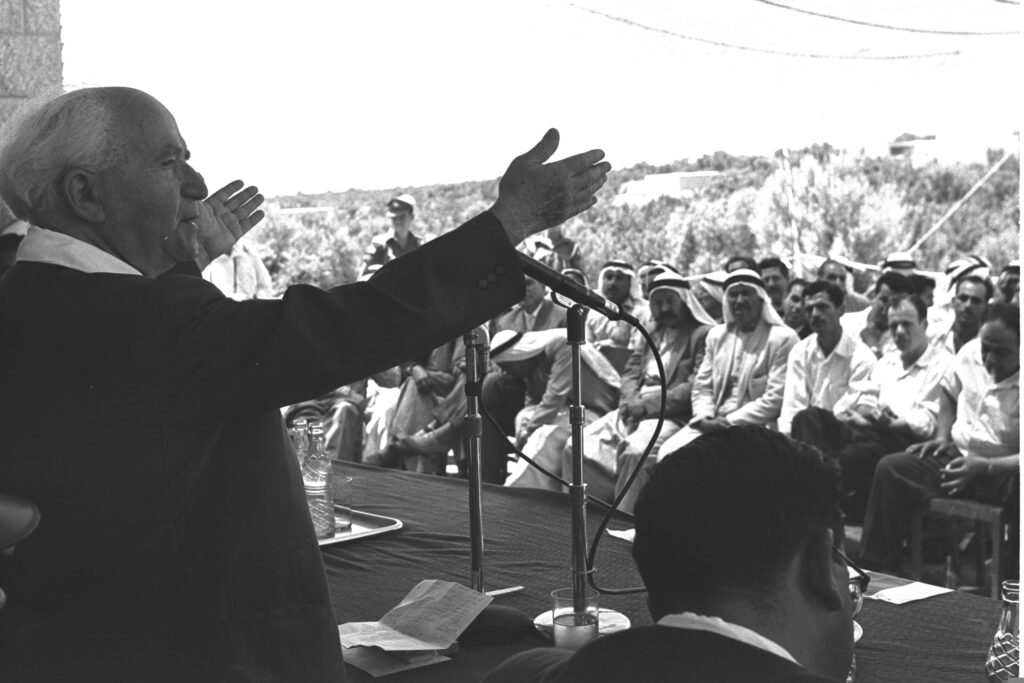In response to President Eisenhower’s demand that Israel leave Sinai, Prime Minister Ben-Gurion provides a detailed history of Israel at the UN and Egypt’s denial to Israel of use of the Suez Canal. He stresses Egyptian “injustice, discrimination, hostility, and boycott” imposed on Israel.









